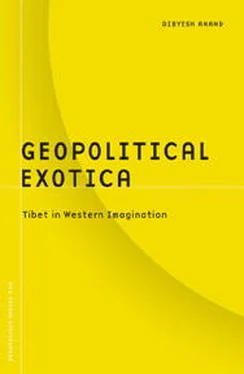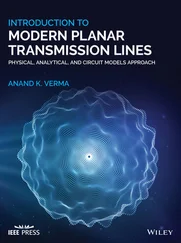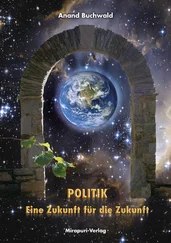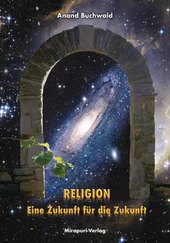Shuttleworth,
Simla Talks,
Sino-Indian relations, xv,
Sino-Western relations, xv
Smith, A.,
Smith, S.,
Snow Leopard, The,
Snyder, R. S.,
sovereignty, xvi, xviii,
Sperling, E.,
Spivak, G. C.,
stereotype,
stereotyping, xvii,
Strasbourg Proposal,
strategic essentialism
strategies of representation,
See also representational strategies
subjectivity,
Tibetan, xv,
surveillance,
suzerainty, xvi, xviii,
Sylvester, C.
Tashi Lama,
See also
Teshoo Lama Teshoo Lama,
See
also Tashi Lama
Thargyal, R.
theosophist
third debate, xiv
Third Eye, The,
Thurman, R. A. F.,
Tibetan Books of the Dead, The,
Tibetan Buddhism,
; comparison with classical Buddhism,; as idealized Buddhism, 49; as impure Buddhism
Tibetan Review,
Tibet mission of 1903-4
. See also British expedition of Tibet of 1903-4
Tibetophilia
Tibet question
Tibet support groups
Tintin in Tibet,
transnationalism,
truth claims,
tsampa,
Tsering, L.
Turner, S.,
UN General Assembly, 82, 133 UN Security Council
Unveiling of Lhasa
veil
Venturino, S.,
"victimisation paradigm,"
Waddell, L. A.
Waever, O.,
Ward, F. K.,
Weldes, J.,
Wellby, M. S.,
white man's burden,
Willoughby, M. E.,
Wilson, A.,
Wolff, Joesph,
yeti,
Younghusband expedition, See also British expedition of
Tibet of 1903-4
Zizek, S.
A BOOK SERIES CONCERNED WITH REVISIONING GLOBAL POLITICS
David Campbell and Michael J. Shapiro, series editors
Volume 30 Dibyesh Anand, Geopolitical Exotica: Tibet in Western Imagination
Volume 29 Prem Kumar Rajaram and Carl Grundy-Warr, editors, Borderscapes: Hidden Geographies and Politics at Territory's Edge
Volume 28 Louiza Odysseos, The Subject of Coexistence: Otherness in International Relations
Volume 27 Denise Ferreira da Silva, Toward a Global Idea of Race
Volume 26 Matthew Sparke, In the Space of Theory: Postfoundational Geographies of the Nation-State
Volume 25 Roland Bleiker, Divided Korea: Toward a Culture of Reconciliation
Volume 24 Marieke de Goede, Virtue, Fortune, and Faith: A Genealogy of Finance
Volume 23 Himadeep Muppidi, The Politics of the Global
Volume 22 William A. Callahan, Contingent States: Greater China and Transnational Relations
Volume 21 Allaine Cerwonka, Native to the Nation: Disciplining Landscapes and Bodies in Australia
Volume 20 Simon Dalby, Environmental Security
Volume 19 Cristina Rojas, Civilization and Violence: Regimes of Representation in Nineteenth-Century Colombia
Volume 18 Mathias Albert, David Jacobson, and Yosef Lapid, editors, Identities, Borders, Orders: Rethinking International Relations Theory
Volume 17 Jenny Edkins, Whose Hunger? Concepts of Famine, Practices of Aid
Volume 16 Jennifer Hyndman, Managing Displacement: Refugees and the Politics of Humanitarianism
Volume 15 Sankaran Krishna, Postcolonial Insecurities: India, Sri Lanka, and the Question of Nationhood
Volume 14 Jutta Weldes, Mark Laffey, Hugh Gusterson, and Raymond Duvall, editors, Cultures of Insecurity: States, Communities, and the Production of Danger
Volume 13 Frangois Debrix, Re-Envisioning Peacekeeping: The United Nations and the Mobilization of Ideology
Volume 12 Jutta Weldes, Constructing National Interests: The United States and the Cuban Missile Crisis
Volume 11 Nevzat Soguk, States and Strangers: Refugees and Displacements of Statecraft
Volume 10 Kathy E. Ferguson and Phyllis Turnbull, Oh, Say, Can You See? The Semiotics of the Military in Hawai'i
Volume 9 Iver B. Neumann, Uses of the Other: "The East" in European Identity Formation
Volume 8 Keith Krause and Michael C. Williams, editors, Critical Security Studies: Concepts and Cases
Volume 7 Costas M. Constantinou, On the Way to Diplomacy
Volume 6 Gearoid O Tuathail (Gerard Toal), Critical Geopolitics: The Politics of Writing Global Space
Volume 5 Roxanne Lynn Doty, Imperial Encounters: The Politics of Representation in North-South Relations
Volume 4 Thom Kuehls, Beyond Sovereign Territory: The Space of Ecopolitics
Volume 3 Siba N'Zatioula Grovogui, Sovereigns, Quasi Sovereigns, and Africans: Race and Self-Determination in International Law
Volume 2 Michael J. Shapiro and Hayward R. Alker, editors, Challenging Boundaries: Global Flows, Territorial Identities
Volume 1 William E. Connolly, The Ethos of Pluralization

Dibyesh Anand is an Associate Professor at London's Westminster University, an expert on majority-minority relations in China and India, and the author of Geopolitical Exotica: Tibet in Western Imagination
Dibyesh Anand is a reader in international relations at the Centre for the Study of Democracy at the University of Westminster in England. He has published on postcolonial international relations, the Tibet question, and Hindu nationalism.
***

[1] Though critical international theories have questioned mainstream International Relations (IR) on epistemological, ontological, and methodological grounds, they remain largely focused on the "West." I contend that the parochial character of IR can be effectively challenged by a postcolonial IR based on conversations between critical international theories and postcolonialism. Adopting a historical analytical perspective, I examine "Exotica Tibet" (henceforth used as a shorthand for Western exoticized representations of Tibet and Tibetans) and its constitutive significance for the "Tibet question." [1] Exotica Tibet is interrogated in terms of its poetics (how Tibet is represented) and its politics (what impact these representational regimes have on the identity discourses of the represented). While Tibet excites the popular imagination in the West, it has been treated cursorily within political studies. I contextualize the empirical study of the Tibet question to put forward more general arguments that may apply to other parts of the postcolonial world and provide new insights into themes of representation and identity.
I use the term "Tibet question" to refer to Tibet as an issue in world politics. By using the interrogative word, I foreground the Tibetan issue as a "problem," in line with the "Palestine question" or the "Irish question." It is more than "the conflict over the political status of Tibet vis-a-vis China" (Goldstein in Goldstein and Kapstein 1998, 14; see also Heberer 1995). Crucially, it includes an examination of the very categories of "Tibet" and "Tibetans."
[2]One other reason for this could be what Chan argues is IR's paucity in understanding matters of religions and religious values contributing to the fact that it "has nothing to say about the contest between China and Tibet to ordain and maintain Lamas" (2000, 566). The most famous of these contests is over the reincarnation of the Panchen Lama, usually considered as second in religious hierarchy within Tibetan Buddhism (at least within the dominant Gelugpa sect), next only to the Dalai Lama.
[3]The International Commission of Jurists (http://www.icj.org) in Geneva brought out two early reports on Tibet-"The Question of Tibet and the Rule of Law" (1959) and "Tibet and the Chinese People's Republic" (i960)-and continues to issue reports. The UN General Assembly has passed three resolutions on Tibet: 1353 (XIV) 1959; 1723 (XVI) 1961; 2079 (XX) 1965. For details on these as well as other international resolutions on Tibet, see Department of Information and International Relations (1997).
Читать дальше














